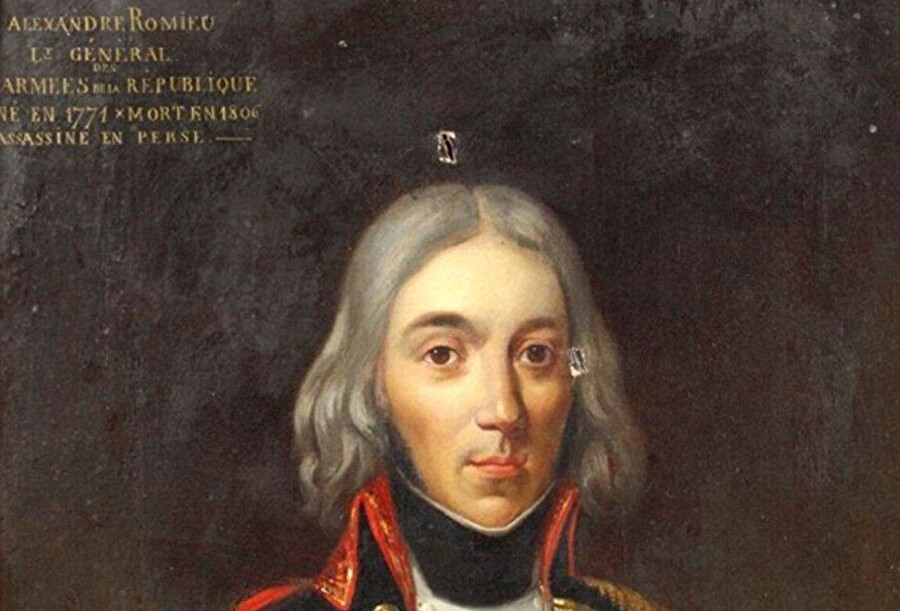He was a French spy when the British and the French were fighting for Persia: Who is Monsieur Romieu?
As soon as Romieu set foot in Tehran, he suddenly fell ill. He passed out for three days, falling ill with bouts of chills and high fever, and eventually died. Rumors say that he was poisoned.

At the very beginning of the 19th century, Europe was at war. In the midst of tensions, with the outbreak of an open conflict between France and England, a letter falls on the desk of the representative of the British East India Company in Bushehr and mentions a French agent named Romieu, whose destination is suspected to be in the East. The story of the 'talented' Monsieur Romieu, who changed the course of the war, would end in the lands of the Middle East.
The beginning of the 19th century witnessed a large-scale war called the Napoleonic Wars. The year 1805 was one of the most active years of this war. Under the leadership of Napoleon, France had thought of invading England directly and planned that the war would end soon after a strong opponent like England was eliminated from the opposite front. Napoleon, who made serious preparations for this plan, made a military shipment to Boulogne on the French territory on the opposite coast of England. Of course, before a military landing, the English Channel had to be secured. Therefore, a naval battle was inevitable before any land operation. It was so, and the Battle of Trafalgar took place between the parties. However, the defeat of Napoleon against England in the naval battle that took place also ruined his plans to invade England, necessitating the need to focus on other fronts in order to win the war.
In fact, Napoleon began his search for allies in this multi-front war even before his defeat at Trafalgar. It seems that one of the powers that he wanted to form an alliance with was from the Middle East geography. Due to the war situation, such developments were undoubtedly important on the opposing enemy front and required close follow-up.
A letter sent to William Bruce, the representative of the British East India Company in Bushehr, contained details on this issue. The letter was first sent to Baghdad by the British Ambassador in Constantinople, Alexander Stratton, and forwarded to the British officer here, Harford Jones, and from there it was sent to Bushehr. The letter mentioned a French official named Romieu, whose destination he suspected was the East. He was also said to have a reputation as a 'talented' man, said to have a substantial sum at his disposal, and warned to beware of his intrigues. Monsieur Romieu's steps were carefully followed by the British, especially in Baghdad, and the necessary authorities were informed about it.
The letter sent to the British office in Bushehr was not limited to just one. In another letter dated July 25, sent from Baghdad to Bushehr, it was mentioned that Romieu appeared in Aleppo, where he had his money converted to gold and intended to go to the land of Persia. Bushehr did not neglect to inform other authorities in Muscat and the Arabian Gulf in the face of these developments.
So who was Romieu and why was he so worried about his presence in the region?
Antoine-Alexandre Romieu by his full name was a traveler who served on military missions and held diplomatic missions in Corfu. Returning to Paris in 1804, at the age of forty, Romieu hoped to be given new assignments and became a name that left an impression on Napoleon.
Napoleon had ordered Foreign Minister Talleyrand to send Romieu to Iran to learn about their current situation and the strength they had, and he had demonstrated his intention to form an alliance with the Qajar Shah. For Napoleon, this alliance would undoubtedly be a good decision. Because France was not only at war with England but also with Russia and Austria. In addition, the occupation of Egypt caused a great deal of tension with the Ottoman Empire.
The 20th of May, when Romieu set foot in Istanbul, caused a great deal of uneasiness on the British front, and attempts were made to prevent this trip. However, at that time when communication facilities were extremely slow, the letters written to him arrived in Tehran two days before they reached Bushehr. To prevent Romieu, even an assassination was planned, according to the French claim. This attempt, allegedly attempted by the British consul in Aleppo, was successfully foiled.
But Romieu suddenly fell ill shortly after that. He passed out for three days, falling ill with bouts of chills and high fever, and eventually died. Rumors said he had been poisoned, with the French blaming Britain for it. Britain, which denied this claim, defeated Napoleon's navy at the Battle of Trafalgar a short time after this date. Although an alliance was established between the Qajar Dynasty and France in the following period, no result could be obtained from this. Although the whereabouts of Romieu's grave, which is thought to have been buried in Tehran, is not clearly known, there was one thing that was certain, the conflict of Western forces on this geography was quite ancient.
